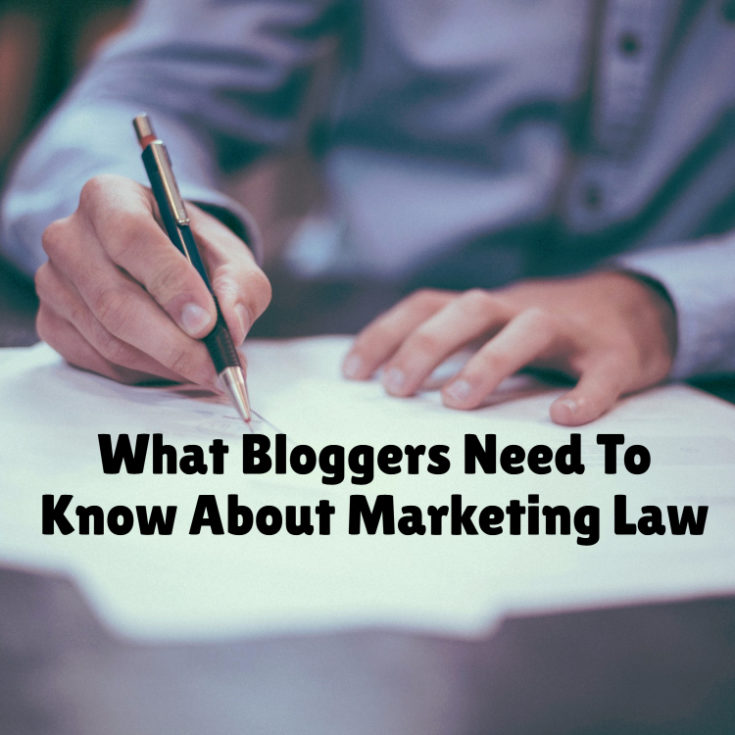Disclosure: This post may contain affiliate links, meaning we get a commission if you decide to make a purchase through our links, at no cost to you. Please read our disclosure for more info.
Last Updated on December 28, 2020 by Work In My Pajamas
It’s easy to forget sometimes, given our fondness for the First Amendment, that there are actually quite a few laws that govern what we can and can’t say and do online. And for prolific online content creators like bloggers and marketers, it’s particularly important to understand these laws. Here’s a crash course in everything you need to know about the laws surrounding online marketing.
In This Post:
Are You Using Protected Images?
It’s worth our time to dispel one of the most common myths first: Namely, that if it appears on the Internet, you’re free to use it. Because bloggers and content marketers make extensive use of photographs and other imagery, this is the most common source of legal entanglements when it comes to issues of Fair Use.
Let’s make it simple: You cannot use just any image you find on the Internet. But the good news is that you have a number of options at your disposal if you find something you just have to have.
First, you can try linking to the proper owner of the image. In some cases, though not all, this will be enough to avoid and problems. You’re much better off asking for permission first. In most cases, all it takes is a quick email.
Having said that, the safer course is to use royalty-free images, such as what you’ll find on stock photography sites like Shutterstock and iStockphoto. These typically carry subscription costs, though, so make sure you’ll make regular use of it.
But if you’re looking for content with a little more of a “homemade touch,” you can also try your luck searching major photo sharing sites like Flickr for free images with a Creative Commons license. I’d recommend giving CC’s comprehensive image search tool a try, though keep in mind that even Creative Commons licenses will sometimes require linked attribution.
Have You Disclosed Your Endorsements?
Back in its infancy, the Internet opened up a veritable Wild West of new advertising techniques, including paid promotions and endorsements. It might go without saying, but practices like these open a huge legal can of worms when it comes to being transparent about business entanglements.
According to the Federal Trade Commission, it’s not exactly illegal to engage in paid endorsements, but that doesn’t mean there aren’t a host of best practices to keep in mind. In fact, the FTC has a lengthy FAQ devoted to the subject. The key point is that the government doesn’t actively monitor online product reviewers any more than they monitor reviewers who publish to more traditional media.
And that means the practice of product endorsements is left to the honor system. As we’ve seen recently with some high-profile conflicts of interest, you’re better off being up-front and honest if you’ve been paid to review or endorse a particular product or service.
Has Someone Stolen Your Content?
Digital ownership is a tricky subject, as you’re likely aware if you’ve followed any of the hullaballoo surrounding film and music piracy. But blogging comes with plenty of its own potential conflicts, since it can be all too easy to lift, even accidentally, written or visual content from its rightful owners.
So here’s the question: Just how protected is your digital intellectual property? The good news is that copyright protections grant each of us ownership over our digital content, and that protection kicks in the moment it’s published. The bad news is that the law is frequently ignored or overlooked.
Even if your published content doesn’t contain a trademark symbol, you’re within your rights to bring content theft to the attention of the offending party. In many cases, just sending them a friendly email will be enough to get them to take it down. Alternatively, you can request attribution and let them keep it up.
Do remember that Fair Use, such as quoting an original document, is protected under US law.
Do You Have a Privacy Policy?
Privacy has become one of the most significant legal and moral issues in the modern Web. With major corporations like Apple and Google drawing definitive lines in the sand concerning how they do (and don’t) use their customers’ data, you owe it to your customers and visitors to be very clear about your policies.
It’s a simple fix. If your websites asks visitors for personal information such as names, phone numbers or email addresses, recognize that this is a sacred trust. To communicate to your users that you have no ulterior motives, add a simple Privacy Policy statement to your website. It can be as straightforward as this: We promise never to share your personal information with third parties. See? Simple.
As you can see, the Internet is governed in equal part by law and trust. Knowing your rights as well as your responsibilities as a content creator can save you a great deal of heartache in the long run.




